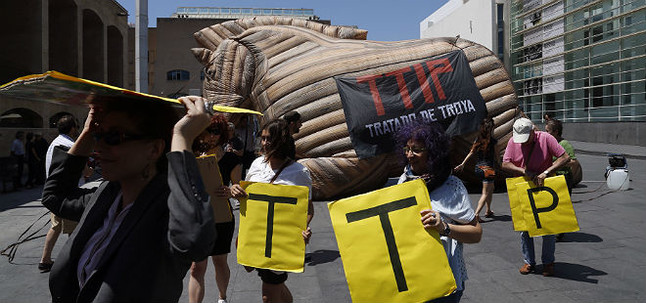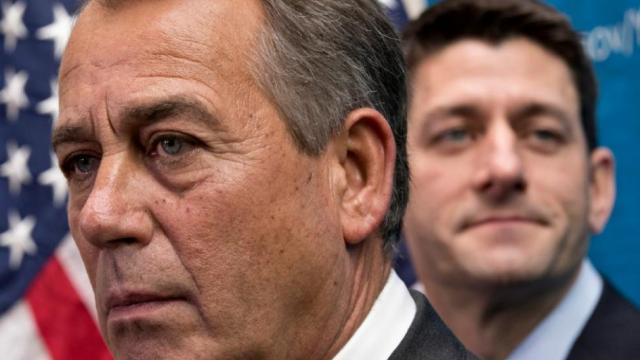- Registrado
- 16 Mar 2013
- Mensajes
- 7.584
- Calificaciones
- 26.300
Sin embargo ya lo han aprobado...han tardado sólo pocos días para cambiar favorablemente al TPP el voto del Congreso...218 contra 208...Una buena noticia, aunque temo que no vaya a ser nada definitivo, pero en fin, es importante: en EEUU le acaban de dar un frenazo a Obama en este tema. Han bloqueado (de momento), el TTP, que es el equivalente del TTIP para Asia y Pacìfico. La rebeliòn en el Congreso, el viernes pasado, ha sido conducida por la lìder democràtica Nancy Pelosi.
En concreto, lo que ha ocurrido es que el Congreso, por una mayorìa de 302 frente a 126 votos, se ha pronunciado contra el Trade Adjustement Assistance (TAA), que es una componente sin la cual el legislador no puede dar luz verde al Fast Track Authority, (o autorizaciòn para ir por el atajo, traducido asì a pelo), que da al Presidente Obama todos los poderes para negociar en solitario el TTP, y, en consecuencia, el "hermano" atlàntico TTIP.
Temo que no serà màs que un aplazamiento, pero en fin...algo es algo.
http://www.zerohedge.com/news/2015-...-tpp-bill-after-pelosi-led-democrat-rebellion
Obama tiene ya su fast track para poder negociar y con eso concluir la firma del TPP
http://rt.com/usa/268165-tpp-tpa-fast-track/






